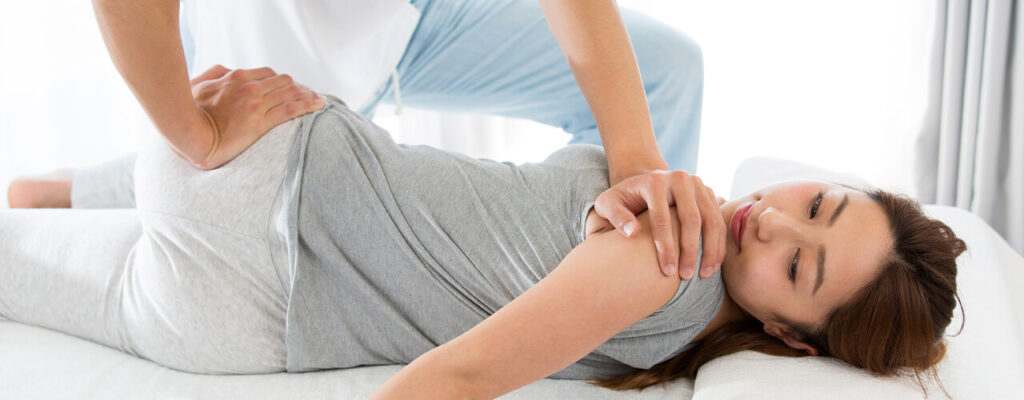Your hips and knees provide complex movements for the body by incorporating multiple joints, muscles, and tendons. When there is damage to any of those joints, muscles, or tendons, it can make moving the hips or knees increasingly difficult.
Luckily, with the help of physical therapy, you can find relief for your hip and knee pain, in addition to decreasing your chances of sustaining further injury in the future. For more information on how our services can benefit you, schedule a consultation today!
How does physical therapy work?
No matter what condition is causing your hip and knee pain, a physical therapy program can help relieve your pain. Your physical therapist will evaluate your condition and create an individualized treatment plan to meet your specific needs. Range of motion and strength measurements may be taken during the physical therapy evaluation. There are several treatment methods a physical therapist may use to help limit or relieve both knee and hip pain, including:
- Manual therapy. A physical therapist might use hands-on techniques to reduce pain in your hips and knees, including stretching exercises or a variety of massage techniques.
- Ice and heat therapies. Ice is typically used to reduce swelling and inflammation, while heat is typically used to increase mobility and lessen pain.
- Home exercises. A physical therapist can teach you exercises to do at home, in order to alleviate your hip and knee pain. Physical therapy techniques can be incorporated into a home exercise program that can become part of your daily routine.
- Ultrasound therapy. A physical therapist may use ultrasound to provide deep heating in the tissues and identify any problem areas.
- Laser therapy. Laser therapy is increasingly being used in physical therapy for pain management. It can help increase circulation, reduce swelling, and improve the growth and reproduction of cells.
What conditions can physical therapy treat?
There are several specific conditions that physical therapy can treat. These can occur due to repetitive motion, traumatic injury, or chronic disease. The most common conditions causing hip and knee pain include:
- Arthritis. Arthritis is a condition that results in the inflammation of tissues surrounding the joints. This condition can cause knee and hip pain if it develops in those joints. A physical therapist can teach you correct posture and proper movement techniques to protect your joints and relieve arthritic pains.
- Bursitis. Bursitis occurs when a small sac of fluid, known as the “bursa,” becomes inflamed. This is often caused by overuse or repetitive injuries. Bursitis can occur in a variety of locations in the body, including the hips and knees. Physical therapy can aid in recovery and the reduction of pain.
- Meniscus tears. This is one of the most common knee injuries that people experience. A torn meniscus can cause mild to severe pain, swelling, and stiffness. This condition can occur as the result of either a sudden injury or repetitive motions. You’re at a higher risk of sustaining a meniscus tear if you’re engaging in a sport or hobby that requires aggressive pivoting and twisting of your legs. A physical therapist can provide non-surgical treatment for a torn meniscus.
- Sprains and strains. Sprains occur when a ligament is stretched beyond its limits, while strains occur when a muscle or tendon is beyond its limits. It is also possible for ligaments to rupture, which can cause pain, bruising, and limited mobility. A physical therapist can help you recover quickly while showing you exercise techniques to reduce pain.
Schedule your consultation today!
If you’re looking to achieve an active and pain-free life, schedule your consultation today. One of our dedicated physical therapists would be happy to meet with you and design an individualized treatment plan to fit your needs. Contact us today to find out how you can say goodbye to your hip and knee pain, and begin living the life you want, free from limitations!

